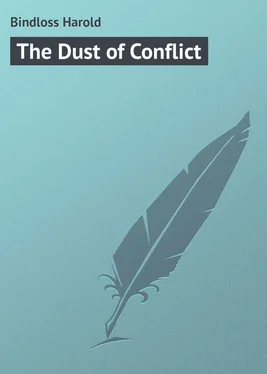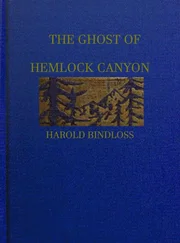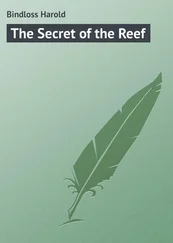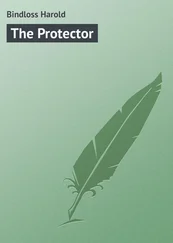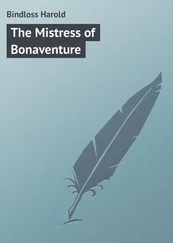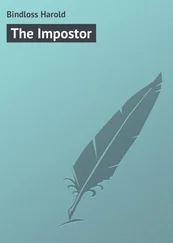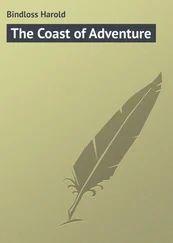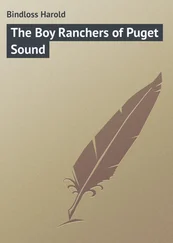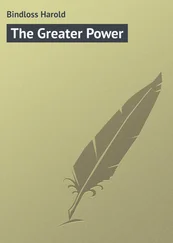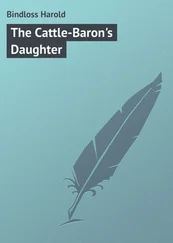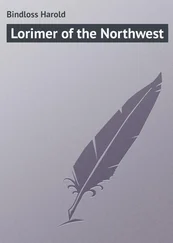Harold Bindloss - The Dust of Conflict
Здесь есть возможность читать онлайн «Harold Bindloss - The Dust of Conflict» — ознакомительный отрывок электронной книги совершенно бесплатно, а после прочтения отрывка купить полную версию. В некоторых случаях можно слушать аудио, скачать через торрент в формате fb2 и присутствует краткое содержание. Жанр: foreign_prose, на английском языке. Описание произведения, (предисловие) а так же отзывы посетителей доступны на портале библиотеки ЛибКат.
- Название:The Dust of Conflict
- Автор:
- Жанр:
- Год:неизвестен
- ISBN:нет данных
- Рейтинг книги:4 / 5. Голосов: 1
-
Избранное:Добавить в избранное
- Отзывы:
-
Ваша оценка:
- 80
- 1
- 2
- 3
- 4
- 5
The Dust of Conflict: краткое содержание, описание и аннотация
Предлагаем к чтению аннотацию, описание, краткое содержание или предисловие (зависит от того, что написал сам автор книги «The Dust of Conflict»). Если вы не нашли необходимую информацию о книге — напишите в комментариях, мы постараемся отыскать её.
The Dust of Conflict — читать онлайн ознакомительный отрывок
Ниже представлен текст книги, разбитый по страницам. Система сохранения места последней прочитанной страницы, позволяет с удобством читать онлайн бесплатно книгу «The Dust of Conflict», без необходимости каждый раз заново искать на чём Вы остановились. Поставьте закладку, и сможете в любой момент перейти на страницу, на которой закончили чтение.
Интервал:
Закладка:
There was accordingly a desire to spare them unpleasantness in the minds of those who attended the informal courts of inquiry held at the “Black Bull,” as the result of which the men who appeared to testify at the one sanctioned by the law of the land came there with convictions already formed, for Northrop village had thrashed out the question. Northrop knew all about Tony’s flirtation with Lucy Davidson, but it also knew a good deal more about that lady than Tony did, and exculpated him. He had, it was true, been seen to give Davidson five pounds, but that was not an astonishing thing when the friends he brought down had been enthusiastic over, the partridge shooting provided them; while there were not many men in his uncle’s service he had not given sovereigns to. The men remembered this, and hoped for more.
It was also known that he had not left his room on the eventful night, and though everybody was aware that Appleby had gone out, the guests at the hall were occasionally addicted to taking nocturnal strolls after an evening in the billiard room. Northrop accordingly knew just how much it meant to admit when it attended the inquest, and when the rustic mind adopts that attitude there is nothing further to be extracted from it.
The coroner did not elucidate a great deal when he commenced his inquiry. Tony, who appeared distressed by the recollection, as indeed he was, deposed to the finding of the body and was corroborated by two of his friends. He was listened to sympathetically. Sergeant Stitt testified that he had found signs which apparently suggested a scuffle, but could not be certain there had been one. Then a hush of attention followed the appearance of the doctor. He alluded to certain bruises.
“The one upon the head was evidently caused by a fall upon a stone, which would, I think, alone have produced insensibility,” he said. “The one upon the cheek was apparently the result of a blow from a stick, but it might have been occasioned by a fall.”
“Would either of the blows alone have occasioned death?” asked a juryman.
“Not directly,” said the doctor. “The cause of death was exhaustion resulting from immersion. A man who fell upon the boulders beneath the bridge and rolled into the water would be very likely to succumb in that fashion.”
Two servants from the hall were called, and then Tony’s man. “I saw Mr. Appleby go out,” he said. “It was about eleven o’clock, but might have been later. He took something from a rack which held sticks and riding-whips. He usually did take a stick. What do I mean by usually? Well, he would walk down the avenue and home by the footpath now and then just before he went to his room at night. I heard him come in about half an hour later. I noticed mud on his shoes and trousers next morning; but he would have to cross a wet place before he reached the lawn.”
Everybody seemed satisfied; but there was a little murmur when Miss Wayne appeared, and somewhat indignant glances were cast upon Sergeant Stitt. She wore a veil, but she removed it when she turned to the jury; and it was in a clear, cold voice, which had a trace of haughtiness in it, she answered the questions asked her.
“I am. I believe, the last person Mr. Appleby spoke to before he went out,” she said. “So far as I noticed he did not appear disturbed or in any way irritated. I met him at the head of the stairway.”
“Was the meeting accidental?”
A faint trace of color crept into the girl’s cheek, but it was in a clear, even voice she said: “He had given me to understand that he wished to see me.”
“Had he anything in particular to say to you?”
One or two of the jury made it evident that they considered the question in bad taste, but there was a curious silence when it was seen that the witness hesitated.
“He asked me for ten pounds,” she said.
Tony gasped when this was told him, and felt his face grow a trifle warm, while a little thrill of indignation ran through him. He had been pleased to see his friend and sweetheart on good terms, but that one should borrow ten pounds from the other suggested a degree of intimacy he had not contemplated.
“Do you know why he wanted the money?” asked the coroner.
The girl looked at him steadily, and nobody saw that her hands were trembling. “No,” she said coldly. “That is, I do not know exactly. I had, however, asked him to do me a favor which might cost a little money, and surmised that he needed some. It was not quite certain that I should see him on the morrow.”
“What was the favor?”
Violet Wayne straightened herself with an almost imperceptible movement, but there was a change in her pose, and she held her shapely head higher. “It had nothing to do with anything that could concern this inquiry,” she said.
“You are on oath, Miss Wayne,” said the coroner. “Remembering that, you are willing to repeat the assurance you have just given me?”
“Yes,” said the girl, standing very still, though every nerve in her was tingling. She long remembered the strain she underwent just then, but it was not until afterwards she was sorry that she had submitted to it. She did nothing by half, and her love for Tony carried an obligation with it. There were only one or two people, and Tony was not among them, who realized all that Violet Wayne was, but they paid her a respectful homage they offered to no other woman.
The coroner had not seen her until that morning, but her bearing, and perhaps her beauty, had an effect, for he signified that he was contented, and Godfrey Palliser was called. He carried himself a trifle stiffly, and was as usual immaculate in dress while it was with a suggestion of carefully suppressed annoyance, which some of those present sympathized with, he gave his evidence.
Davidson had served him four years, he said. He frequently went round the woods at night, and had of late suspected that poachers had been at work about the fir spinny. So far as he knew, and he had made inquiries, nobody but Bernard Appleby, a relation of his own, and a young man of unimpeachable character, had gone out of his house on the night in question. Appleby had spent fourteen days at the hall and it was at least twelve months since he had stayed there before. It appeared unlikely that he should have intended to meet Davidson.
Palliser was followed by a teamster, whose evidence made an impression. “I came out of the ‘Black Bull’ with Davidson at ten minutes to eleven,” he said. “He wasn’t exactly what one would call sober, though a man who didn’t know him wouldn’t have noticed it. He told me he was going round by the fir spinny to see if he could catch somebody who’d been laying snares. I told him to be careful he didn’t pitch over the footbridge.”
Most of those present were sensible of a little relief. Nothing unpleasant could, it seemed, transpire now, and the jury, who waited for Appleby to inform them that he had seen nothing of Davidson during his stroll, began to see what their verdict would be. There was also no great show of interest when the coroner asked for Bernard Appleby.
He asked twice, however, and there was no answer, while the jury exchanged significant glances when five minutes passed and the witness did not appear. Then there was a curious silence as Sergeant Stitt, flushed with haste, came in.
“Mr. Appleby was duly summoned, sir,” he said. “I have just received this telegram from the solicitors he is engaged with.”
Nobody moved while the coroner opened the message, and there was deep stillness as he read aloud: “In reply to inquiry Appleby has not resumed his duties here as expected. Have no clue to his whereabouts. Anxious for information.”
“It will be the duty of the police to discover them as soon as possible,” he said. “Have you any notion, Sergeant Stitt?”
Читать дальшеИнтервал:
Закладка:
Похожие книги на «The Dust of Conflict»
Представляем Вашему вниманию похожие книги на «The Dust of Conflict» списком для выбора. Мы отобрали схожую по названию и смыслу литературу в надежде предоставить читателям больше вариантов отыскать новые, интересные, ещё непрочитанные произведения.
Обсуждение, отзывы о книге «The Dust of Conflict» и просто собственные мнения читателей. Оставьте ваши комментарии, напишите, что Вы думаете о произведении, его смысле или главных героях. Укажите что конкретно понравилось, а что нет, и почему Вы так считаете.
